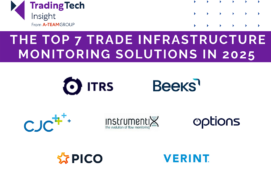The London Stock Exchange (LSE) has offered a transaction reporting service, dubbed the Exchange Reporting Service (ERS), since 2002, but has recently moved the service onto its web-hosted platform UnaVista. According to Mark Husler, head of information services business development at the LSE, the exchange operator decided to move the service onto the platform in order to be able to offer customers value added services including reference data validation for their transaction reports.
To this end, the UK Financial Services Authority (FSA) has granted LSE approval for UnaVista to operate as an approved reporting mechanism (ARM) under MiFID. “LSE has been an ARM for some time and we have offered transaction reporting via our ERS solution before the implementation of MiFID in 2007,” explains Husler. “We have recently moved the transaction reporting service onto the UnaVista platform and had to go through a re-approval process with the FSA to ensure the platform was compliant with the relevant regulatory requirements.”
Husler indicates that the main benefits of moving the service onto the UnaVista platform are that as well as enabling firms to comply with their mandatory transaction reporting requirements, firms can also use the matching and reconciliation functions of the platform to check the relevant data fields are correctly populated. UnaVista’s Transaction Reporting solution is able to accept data in a range of different formats, so clients do not need to rely on middleware to transform their data into the FSA standard formats, he continues.
As a member of Committee of European Securities Regulators (CESR), the FSA has a set of mandatory requirements that ARMs must comply with in terms of minimum criteria for data within the transaction reports and LSE is aiming to help firms meet these requirements. UnaVista is also used as the platform for the Sedol MasterFile and as such is able to reconcile reference data submitted by the LSE’s clients in their transaction reports against its global multi asset class reference data service to reduce the risk of inaccuracies within their transaction reports, explains Husler.
The exchange provider migrated its centralised reference and financial data management solution, Sedol Masterfile, onto UnaVista back in 2008 and this recent move is an attempt to add another reference data string to LSE’s bow. According to Husler, firms can apply validations in addition to those mandated by the FSA, facilitate the management of exceptions highlighted by the validation process and monitor trends to discover recurrent issues as a result of the move of the transaction reporting service onto UnaVista.
“Reference data validation is therefore offered as a value added service to customers so that clients can check that they are in compliance and not liable for potentially substantial fines from regulators. The service also checks that the securities that are being reported to the regulator are MiFID eligible securities and MiFID eligible markets – it reconciles the clients transaction reports against the list of eligible securities. This helps firms to monitor potential under-reporting or over-reporting to the regulator,” he continues.
This is a high profile topic at the moment because of the attention that has been generated by the recent fines that have been given to financial institutions due to transaction reporting issues and incorrect reference data, he adds. Just look at the recent Commerzbank fine for proof. “It’s not just a matter of the cost of the fine, it’s the reputational damage too, and this is why firms have encouraged us to provide this service,” says Husler.
He reckons that transaction reporting should also not be seen as a regulatory silo any more: “Of course, it is a function of regulation but it can also be an opportunity to improve internal controls such as reconciliations across internal systems. Our hosted reconciliation and matching solution allows firms to conduct exception management for their trade data.”
Of course, big changes are on their way in the regulatory space as a result of the ongoing MiFID review process at the European level and the spectre of MiFID 2 in the pipeline. The sequel to MiFID will likely involve a broader set of instruments to be reported and a tightening up of timeframes for reporting this data.
“CESR’s MiFID 2 consultation indicates that a wider set of asset types under MiFID will need to be transaction reported to regulators. This won’t be a challenge for the UnaVista service as we already offer a multi asset class service,” says Husler. “We have done a lot of work to get ready for the introduction of the Alternative Instrument Identifier (AII) and we have already completed the allocation of ISIN and Sedol codes for UK exchange traded derivatives to help customers use established standards alongside the new AII.”
It was announced earlier this year that the launch of the enhanced transaction reporting and market surveillance system incorporating the AII has been delayed indefinitely, but vendors such as LSE have done a significant amount of work already to get on board with the changes. Xtrakter and the FSA’s Transaction Reporting System (TRS) are also both focused on the AII changes.
In the meantime, LSE is hoping to differentiate itself from the four other ARMs out there by acting not just as a mechanism for submitting transaction reports, but also by offering a single solution for a range of data related challenges such as trade confirmations and reconciliation.
It is also looking beyond the UK borders for the future: “We are looking to extend into Europe and possibly North America and Asia in the future with the transaction reporting service. This will be determined by our clients and we are currently consulting firms to understand what their requirements are, and those of the regulators around Europe for providing such a service. The LSE offers a web-based hosted solution so it does not require any software or hardware to be deployed at the client’s site. As such, it would be easier to offer a global solution than installation-based services.”
Subscribe to our newsletter




